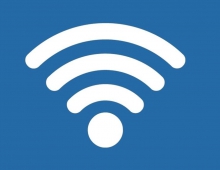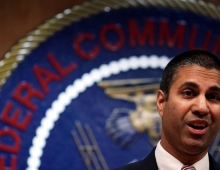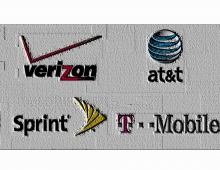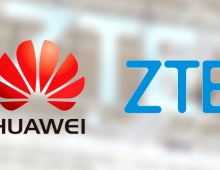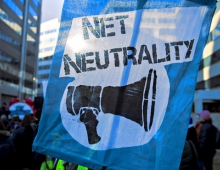
U.S. Supreme Court Rejects Broadband Industry's Move to Challenge 2015 Net Neutrality Rules
The U.S. Supreme Court on Monday declined to hear the broadband industry's challenge of Obama-era net neutrality rules.
In 2016, a U.S. Court of Appeals for the District of Columbia Circuit ruling upheld the Obama-era net neutrality regulations aimed at ensuring a free and open internet. These rules have since been repealed by President Donald Trump’s administration. But on Monday, the U.S. Supreme Court declined to take up the 2016's case. The petitions were filed by AT&T and broadband lobby groups NCTA, CTIA, USTelecom, and the American Cable Association.
In the Supreme Court's case, the Trump administration and internet service providers had asked justices to wipe away 2016's ruling by the lower court that had temporarily preserved the net neutrality regulations championed by former President Barack Obama.
According to the Supreme Court announcement on Monday, Justices Clarence Thomas, Samuel Alito, and Neil Gorsuch "would grant the petitions, vacate the judgment of the United States Court of Appeals for the District of Columbia Circuit [which upheld the FCC's net neutrality order], and remand to that court with instructions to dismiss the cases as moot."
The Federal Communications Commission voted 3-2 in December along party lines to reverse the rules adopted under Obama in 2015 that had barred internet service providers from blocking or throttling traffic, or offering paid fast lanes, also known as paid prioritization.
The new FCC rules went into effect in June and give internet service providers greater power to regulate the content that customers access. Thes new rules are the subject of a separate legal fight after being challenged by many of the groups that backed net neutrality.
The legal battle over net neutrality will continue and could potentially reach the Supreme Court again in a separate case. The Pai-led FCC is defending its net neutrality repeal against a lawsuit filed by dozens of litigants, including 22 state attorneys general, consumer advocacy groups, and tech companies.
Today's Supreme Court decision means that the DC Circuit court's previous decision upholding both the FCC's classification of broadband as a telecommunications service, and its rules prohibiting broadband providers from blocking or degrading Internet content, remain in place. And since the 2016 ruling is established as binding law, the FCC's arguments against net neutrality could futher weaken.
The Justice Department has also filed suit to block California’s state net neutrality law from taking effect in January.
The net neutrality repeal was supported by providers like Comcast Corp, AT&T Inc and Verizon Communications Inc. It was opposed by internet companies like Facebook, Amazon.com and Alphabet.



